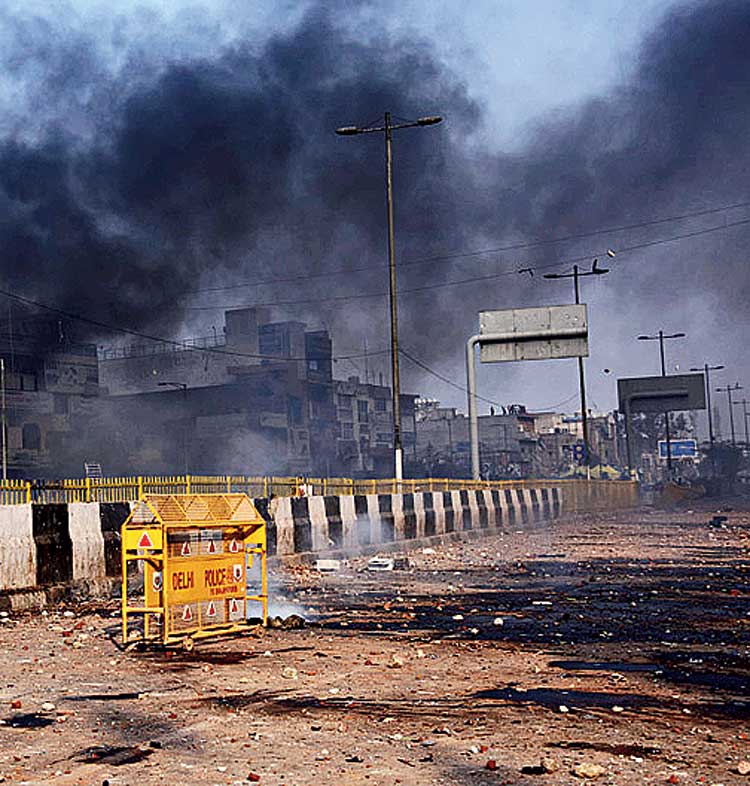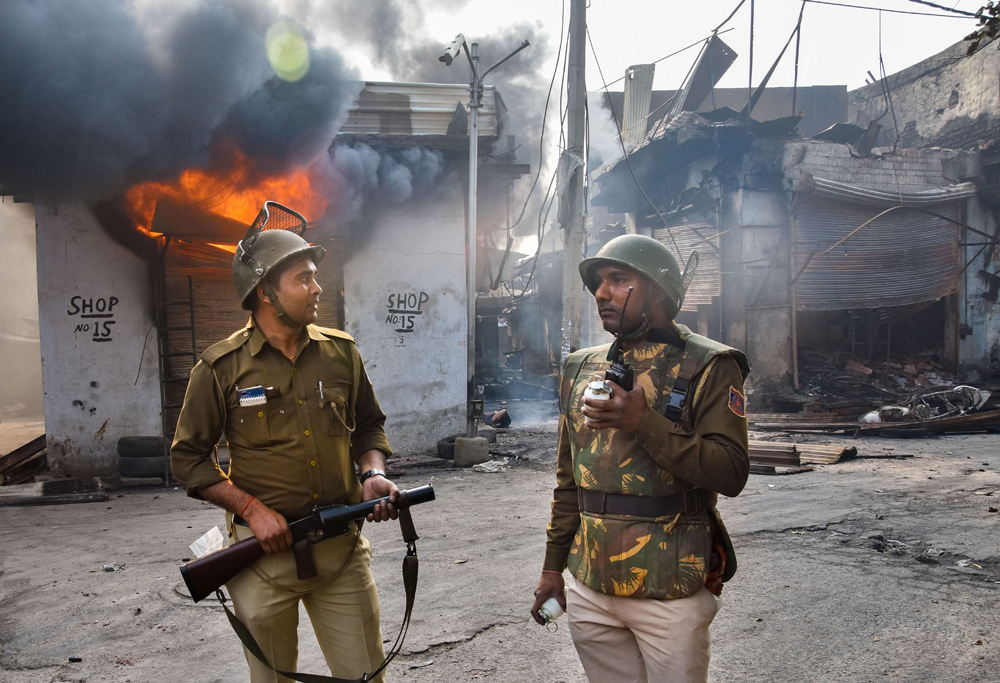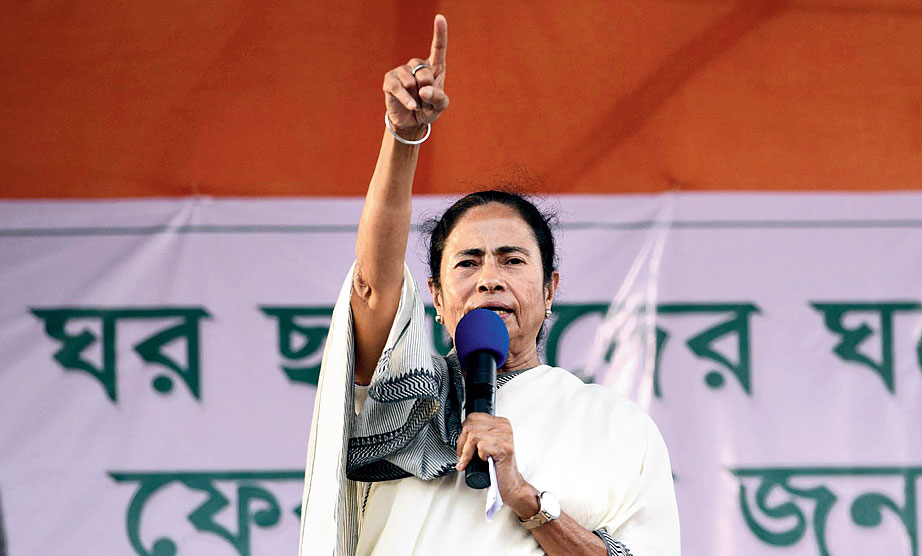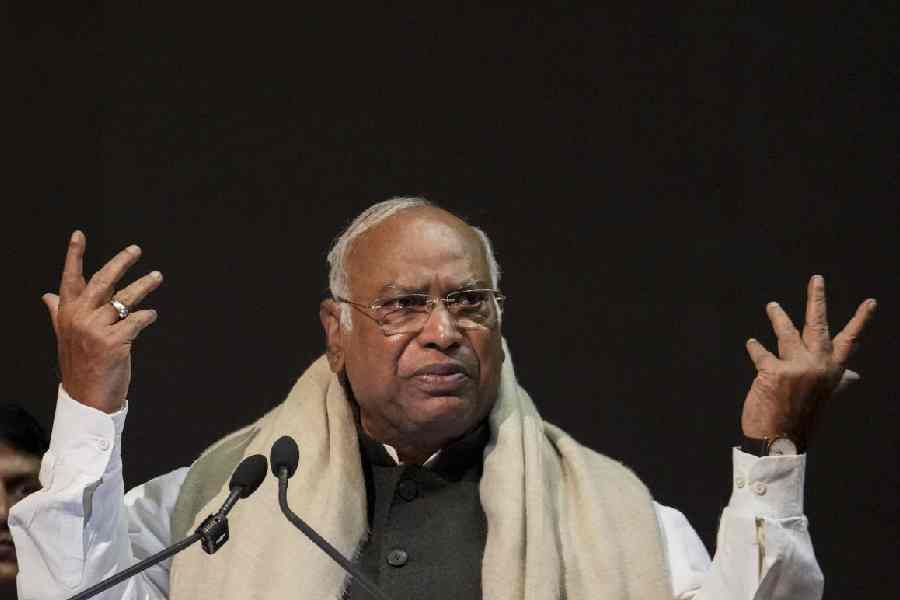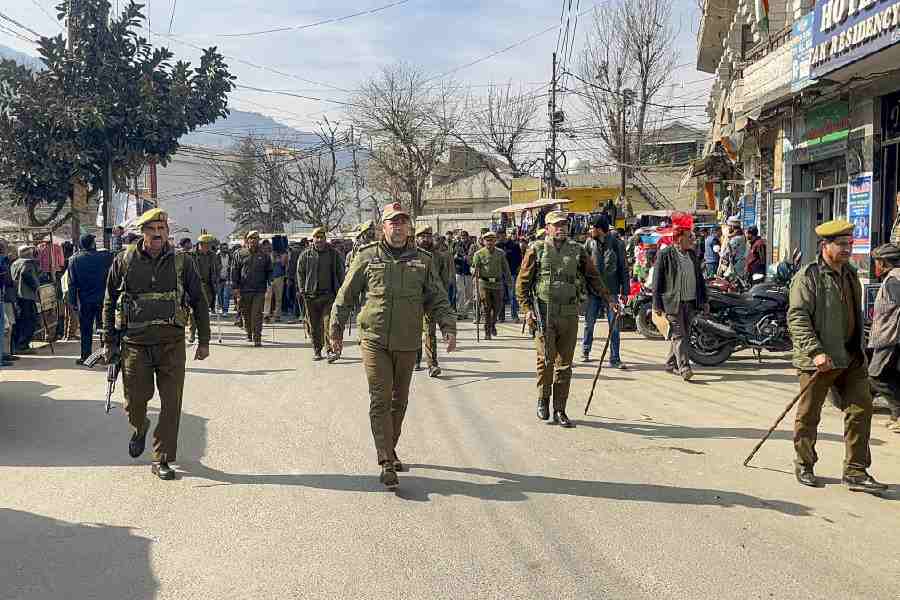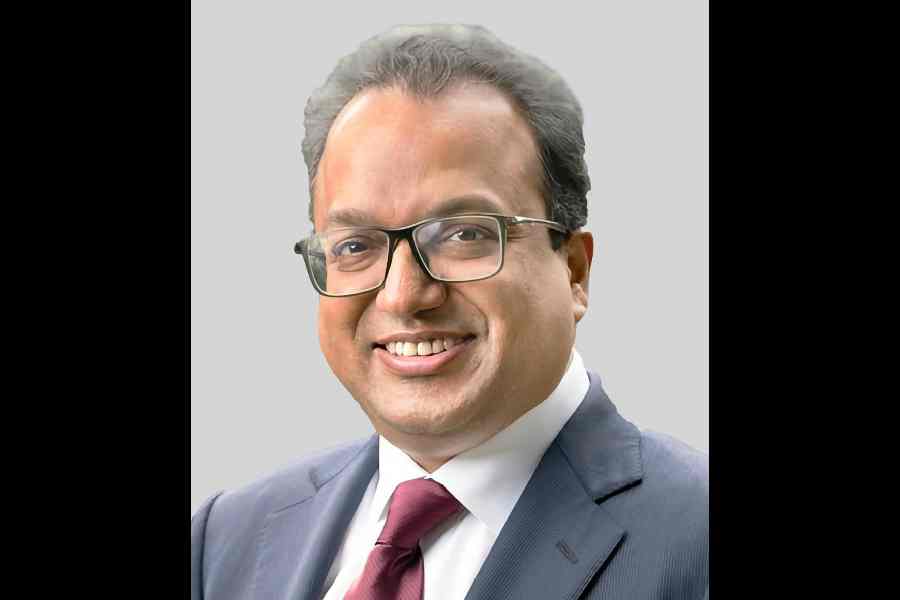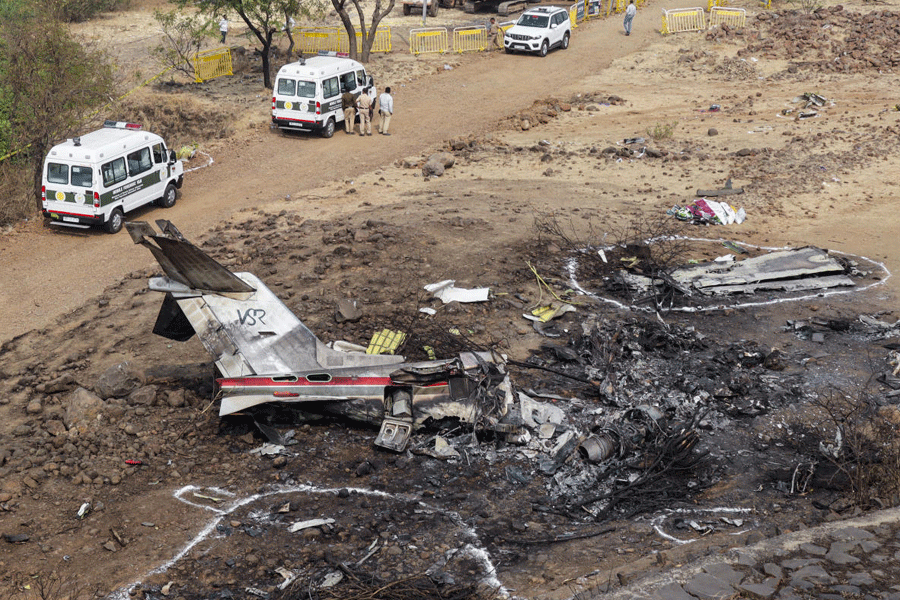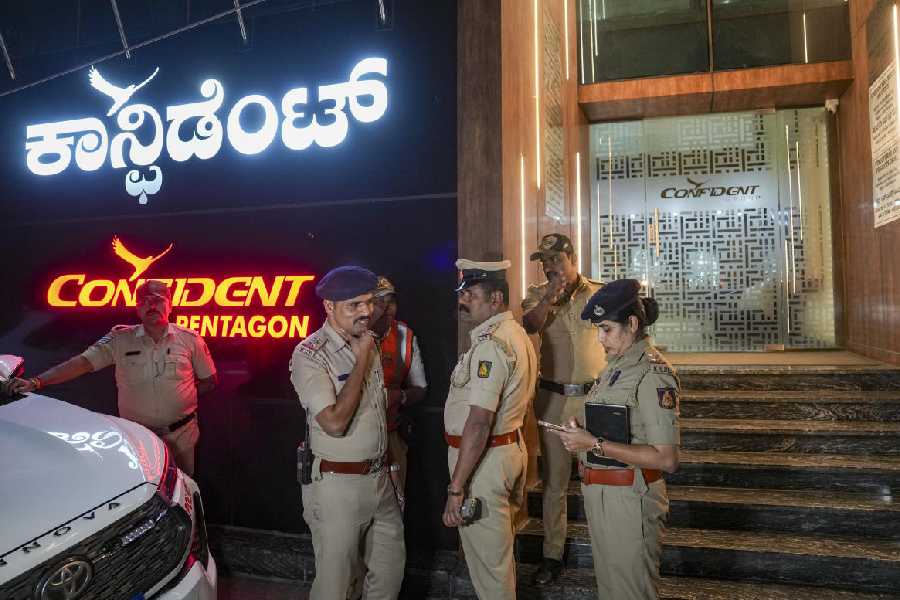Now that the rioting in a corner of Delhi has ended, the focus has inevitably shifted to the blame game, both inside Parliament and in the media. In the coming days and weeks, there will be innumerable conflicting post-mortem exercises centred on pinning responsibility.
At a political level, there will be a concerted attempt to blame the 48 or so deaths on the home minister, Amit Shah. Those opposed to the present dispensation at the Centre will leave no stone unturned to suggest that Shah is cast in the same mould as his leader, Narendra Modi, who was held responsible for the post-Godhra riots in Gujarat 18 years ago. Those viewing the events in more micro detail will focus on the inadequate response of the Delhi Police. Yet others — depending on their political inclinations — will point fingers at either the provocative utterances of small-time leaders of the Bharatiya Janata Party or Muslim leaders who were intent on replicating the Shaheen Bagh protests in another Muslim-dominated locality of Delhi. Despite the attempts by a section of the media — both local and international — to depict the riots as a one-sided assault on the minority community, there are enough horror stories to indicate that both Hindus and Muslims were victims as well as perpetrators. In the case of Delhi, no side can legitimately claim a monopoly over victimhood.
Not that being the victim necessarily helps in a larger political game. In the Delhi riots of 1984, there was no question that Sikhs were targeted with furious intensity. The extent of killing and destruction in the capital after the assassination of Indira Gandhi makes last month’s riots in a corner of Delhi seem like a boisterous brawl. Yet, despite the undeniable evidence that Sikhs were murdered in the thousands by mobs which were led by supporters of the Congress, the political dividends accrued to the Congress in the elections held months later.
The pattern repeated itself in the riots that ensued after the arson attack in Godhra railway station on kar sevaks travelling from Ayodhya in the Sabarmati Express. There was little doubt that Muslims were at the receiving end of the mob violence. It was also undeniable that in the first two days of the violence, the Gujarat police proved incapable of either restoring order or saving lives. Predictably, the then chief minister, Narendra Modi, was blamed for this administrative failure in the same way as Amit Shah is being blamed today. The attacks on Modi were, of course, far more intense and long drawn. No other politician in post-Independence India has encountered so sustained a political attack as Modi did post-2002. Paradoxically, the attacks only served to increase Modi’s popularity, and not merely within Gujarat. His transformation from a regional leader to a national icon owed substantially—though not entirely — to the secularist demonology around him.
The political aftermaths of the Delhi riots of 1984 and the Gujarat riots of 2002 offer some awkward lessons. Administrative shortcomings or even failures don’t necessarily amount to electoral liabilities if they correspond to a popular mood. In 1984, Indira Gandhi’s murder was blamed on the Khalistan movement and the Godhra arson was seen to be the handiwork of Muslim fanatics. The equation of entire communities with extremists was unfortunate, but in the popular imagination this is what seems to have happened. In both cases, the indignation of the intelligentsia was quite decisively rebuffed.
It is not for me to assess the moral validity behind the political reactions to the events in 1984 and 2002. However, the restraint that has been the hallmark of the response of the Delhi chief minister, Arvind Kejriwal, to the Delhi riots is definitely worth noticing. It suggests that the outrage over the alleged targeting of the Muslim minority by Hindu mobs does not necessarily enjoy endorsement in the wider community. In other words, Kejriwal may even realize that had it not been for his record of delivering free water and subsidized electricity to the poorer sections of Delhi, the BJP’s tirade against the protests in Shaheen Bagh may well have prevailed electorally.
The Delhi riots have been damaging to the Modi government in terms of international reactions. However, to imagine that its domestic fallout, particularly in North India, has been equally adverse is unproven. There is as yet nothing to demonstrate that public opinion is on the side of the matrons of Shaheen Bagh. Indeed, the use of the Delhi riots by the Western media as a stick to beat Modi and Shah with could well boomerang. It could even be seen as a conspiracy to vilify India.
Yet, as the old saying goes, for everything that is true of India, the opposite is equally true. The West Bengal chief minister, Mamata Banerjee, responded to the Delhi riots with hyperbolic intensity last Monday by describing it as a ‘genocide’, which was subsequently given a communal complexion. In a bid to posit an alternative narrative to the Citizenship (Amendment) Act, she declared all Bangladeshis living in West Bengal would be regarded as Indians. Her grandstanding was propelled by two considerations. First, she contested the assertion of Parliament that migrants from East Pakistan/Bangladesh should be divided into legitimate refugees fleeing from religious persecution and ‘infiltrators’ driven by other considerations. Secondly, she implicitly contested the constitutional provision that accords Parliament the sole right to legislate on issues of nationality. In line with her new projection as the ‘pride of Bengal’, she maintained that West Bengal would set its own norms.
It is possible that the chief minister’s aggression was a response to Shah’s categorical clarification last Sunday in Calcutta that there was no match-fixing between the state BJP and the Trinamul Congress and that the saffron party would not ease up on its bid to win the 2021 assembly election. If, as whispers would have us believe, she was guided by her spin doctor, Prashant Kishor, she could also have had in mind the rich political dividends earned by Modi between 2002 and 2012 when he invoked Gujarati pride to ward off the charges of communalism hurled at him. In short, Banerjee has sought to counter charges of Muslim appeasement by aggressively flaunting her uniquely Bengali identity. Bengal, she has asserted, is different and won’t be guided by the impulses of the Hindi belt.
Playing the anti-BJP card aggressively at a time of communal polarization has, in the past, paid dividends. In the 2004 Lok Sabha elections, the Left Front managed a total consolidation of votes against the BJP-TMC using the 2002 Gujarat riots as the focus. By reaching out to those who want Bangladeshi Muslims to be given Indian citizenship and open the borders to Muslim Rohingyas from Myanmar, the TMC is hoping for a similar consolidation in both the municipal polls and next year’s assembly election.
The consolidation of Muslim votes behind the TMC will probably happen but there is one big difference from 2002. In 2002, the Left Front added incremental Muslim votes to its formidable pre-existing kitty. However, the campaign to secure Muslim support on the strength of that community’s post-Gujarat riot fears was conducted silently and with great discretion so as to prevent any countervailing Hindu reaction. In fact, the campaign surfaced in public view after the outcome. Banerjee has displayed no such inhibition and believes that in playing the regional card she will be able to blunt any Hindu consolidation.
The demography of West Bengal makes the preferences of the Muslim community far more significant than in any other state, except Assam. This is why riot politics is not disadvantageous to the TMC in West Bengal. Banerjee’s only fear is if the Hindus of the state start voting as Hindus.

